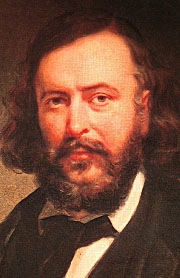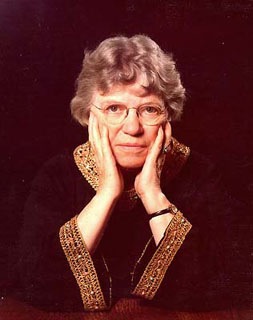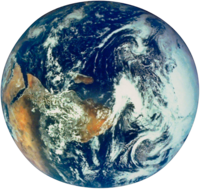Creating A Legacy

“What we have done for ourselves alone dies with us; what we have done for others and the world remains and is immortal.”
–Albert Pike (American Lawyer, Masonic Author and Historian, 1809-1891)
Life Is Meant To Be Lived

“I could not, at any age, be content to take my place by the fireside and simply look on. Life was meant to be lived. Curiosity must be kept alive. One must never, for whatever reason, turn his back on life.”
–Eleanor Roosevelt (American Diplomat, First Lady and Humanitarian, 1884-1962)
Changing the World

“Never doubt that a small, group of thoughtful, committed citizens can change the world. Indeed, it is the only thing that ever has.”
–Margaret Mead (American Anthropologist and Writer, 1901-1978)
The Quest for Meaning

Yesterday I had the privilege of doing an interview with Michael Dresser on HealthRadio.Net. If you have not yet discovered them, I highly recommend the organization. I have put a link to them in the “Shared Visions” section on the left hand side of this blog. If you have any interest in health, there are a huge number of extremely interesting shows and free podcasts.
Having done radio and TV shows in around twenty countries, I can tell you that interviewers come in all shapes and sizes! Michael was very good: quick on the uptake and clearly committed to improving the welfare of his listeners. We did not agree on everything, but an interview where both people stroke each other, is not going to be much help to anyone!
Michael started by saying that the topic of Healing, Meaning and Purpose could easily have filled a three-hour show and he was right. After all, it took me 35 years to write that book. Well, getting it down on paper took eight weeks, but it had taken years of experiment and experience, and the input of thousands of people to get it right.
We decided to focus on meaning. A little tricky to do in 25 minutes, given that over a quarter of Healing, Meaning and Purpose is dedicated to the precise steps for discovering meaning in your life!
Michael expressed his concern about the large numbers of people who live without a feeling of meaning in their lives. And indeed there are huge numbers of people, particularly those who have lost their religious faith or who suffer from chronic illnesses, who find it very hard to find a sense of meaning in their lives.
Many reductionist writers and scientists don’t help when they tell us that we live in a dead, empty, meaningless Universe. They could not be more wrong!
Human beings are the consummate meaning generators in the Universe. Meaning provides context, and from context flows the real richness of life. Meaning fuels the alchemy that can transform an event into an experience. Parables and myths make deep meanings accessible.
The work of the Austrian psychiatrist and Holocaust survivor Viktor Frankl has quite rightly become popular in recent years. He observed that people in concentration camps who had a reason to survive did so. He felt that it was important for people to commit to meaningful goals and values, and to be constantly aware of the meaning in all things. He also emphasized the importance of extending ourselves, to becoming more than we are now. This is one definition of the transpersonal or spiritual domain. Frankl saw mental health as deriving from ultimate meaning, or spiritual values.
The real meaning of freedom is the ability to choose how you will react in response to any situation. You choose the way to think about a problem; you establish your point of view and your way of behaving. It saddens me that so many people whom I see function “on automatic:” They live in a world of habitual responses. As long as you are concerned about what others think and say, you are responding and will never be free. You can be different. So why is it that for so many people life seems to have no meaning?
The main reasons for this sorry state of affairs are disconnection, separation and alienation on the one hand, and being reactive rather than reflective. This can be disconnection and separation from ourselves, from each other, from the world, from understanding our place in the world or from our Higher Self. If we react out of habit and assumption we can really fail to smell the roses. The problem of meaninglessness was never so serious when everyone knew exactly what they were supposed to be doing and they had a clear set of duties and responsibilities.
For many of us our life story has become garbled and inconsistent. Sometimes the simple act of re-writing our life stories can help enormously. In the CDs and the last book I talk a lot about how to do that.
In recent years many people have started talking about “Diseases of Meaning,” a term that was, I think, first introduced by my old friend Kim Jobst.
Most of us think of health and disease as a dichotomy, as two sharply different states. But in reality, health and disease are part of a duality of healthy functioning. As with the other dualities that we have looked at, each contains the other, each is necessary for the other, and each gives rise to the other. Disease is a healthy response of an organism striving to maintain its equilibrium in the face of disruptive forces, like negative thoughts, unbalanced relationships, environmental toxins, poor nutrition, and so on. Disease can initiate a process of transformation; it has meaning. And instead of being brought low by a feeling of powerlessness, this realization can help people become stronger, to live more fully and with more understanding. This way of looking at disease can be applied to any of the chronic illnesses, and even to environmental problems like community violence. Understanding a disease for what it is can be empowering, and even transformative.
Sometimes people who feel meaningless do need professional help and there are forms of therapy designed to help us find meaning. And sometimes the sense of meaninglessness is actually a symptom of an illness such as depression.
But for people who just need to clarify and feel the meaning in their lives there are sets of techniques that we have been using for over twenty years. Here are a few that are all rooted in empirical scientific studies:
- Writing and re-writing your own life story
- Questioning your assumptions about life and about relationships
- Using a brief pause before reacting to anything that happens to you
- Creating meaning through making decisions about your life
- Developing a sense of coherence
- Forming and strengthening relationships
- Techniques for giving people a glimpse of a transcendent reality
- Developing a legacy
It turns out that Michael Dresser and I had another thing in common. He also eradicated a very serious illness using an early form of Integrated Medicine. For both of us, the experience was highly meaningful and gave us a new and sharper focus: to show other people how to care for themselves and their families and how to enhance the quality of their lives.
We are both walking the talk.
“The least of things with a meaning is worth more in life than the greatest of things without it.”
–Carl G. Jung (Swiss Psychologist and Psychiatrist, 1875-1961)
“Deep within himself man seeks meaning for his life, and tries to fulfill himself in accordance with that meaning.”
–Viktor Frankl (Austrian Psychiatrist, 1905-1997)
“When we understand that man is the only animal who must create meaning, who must open a wedge into neutral nature, we already understand the essence of love. Love is the problem of an animal who must find life, create a dialogue with nature in order to experience his own being.”
–Ernest Becker (Canadian Cultural Anthropologist and Interdisciplinary Thinker, 1925-1974)
“So many people walk around with a meaningless life. They seem half-asleep, even when they’re busy doing things they think are important. This is because they’re chasing the wrong things. The way you get meaning into your life is to devote yourself to loving others, devote yourself to your community around you, and devote yourself to creating something that gives you purpose and meaning.”
–Morrie Schwartz (American Educator and the subject of the book Tuesdays With Morrie, 1916-1995
“Any important disease whose causality is murky, and for which treatment is ineffectual, tends to be awash in significance.”
–Susan Sontag (American Essayist, 1933-2004)
“What truly gives life meaning is to work with the light and for the light, without worrying about pleasing or displeasing others.”
–Omraam Mikhaël Aïvanhov (Bulgarian Spiritual Master, 1900-1986)
Money Doesn’t Make You Happy!
“Remember that very little is needed to make a happy life.”
–Marcus Aurelius (Roman Emperor and Philosopher, A.D.121-180)
I recently wrote about a common myth: thinking that there is a connection between income level, health and longevity. Once you have passed a certain low threshold, this connection between income and health does not hold. Quite obviously living in abject poverty in the Horn of Africa or on the streets of New York is associated with all manner of physical and psychological challenges, but once people have reached a certain economic level there are other far more important determinants of health. We cannot use longevity as a justification for capitalism!
We now have a new piece of research that is also intuitively obvious: there is no link between wealth and happiness. You have only to look at the unhappy lives of so many people in the public eye to see that for yourself, and you have probably seen it in people around you. Many wealthy people are profoundly unhappy and some get into substance abuse or other high-risk activities.
Why should this be? People often tend to exaggerate the contribution of income to happiness because they focus on conventional achievements when evaluating their life or the lives of others.
Like success, happiness is subjective.
When taking stock of your life, it is a really good idea to try and score your levels of happiness, balance and satisfaction along five dimensions: physical, psychological, social, subtle and spiritual. In the book and CD program Healing, Meaning and Purpose, I give some very precise ways of doing that. There’s not much point in living in a big house on a hill, if you are rattling around in it on your own. What contribution are you making? And what will be your legacy?
“Happiness is the very nature of the Self; happiness and the Self are not different. There is no happiness in any object of the world. We imagine through our ignorance that we derive happiness from objects. When the mind goes out, it experiences misery. In truth, when its desires are fulfilled, it returns to its own place and enjoys the happiness that is the Self.”
–Ramana Maharshi (Indian Hindu Mystic and Spiritual Teacher, 1879-1950)
Technorati tags: Happiness Wealth Ramana Maharshi
A Rainy Day Question
“Millions long for immortality who do not know what to do on a rainy Sunday afternoon.”—Susan Ertz (a.k.a. J.R. McCrindle, Anglo-American Novelist, 1894-1985)
It is widely known in the scientific community that there has been a great deal of progress on aging research, much of it done behind the closed doors of pharmaceutical companies. According to Professor Tuljapurkar between 2010 and 2030, the modal, or most common, age of death will increase by 20 years if anti-aging therapies come into widespread use. This projected increase is based on some sophisticated modeling, and reflects a life-span growth rate that is five times faster than the current rate. If accurate, this would increase the modal age of death in industrialized countries such as the United States from roughly 80 years to 100.
So back to the question: if you suddenly discovered that you were going to have an extra thirty years of healthy life, what would you do with it?
I really do suggest that you start thinking about that. Assuming that you have enough money to live a decent life, what would you do with that extra twenty years? Would you:
1. Enjoy spending more time with younger members of the family?
2. Learn some new skills?
3. Make new friends?
4. Travel?
5. Read those books you always meant to?
6. Become more involved in spiritual pursuits?
7. Find a new way of serving others?
8. Sit in front of the television?
What plans or aspirations do you have that you want to add to this list?
But then I have another question for you: if your answers included any of the points from 1-7, why not do them right now? What exactly is stopping you from doing all those things today?






